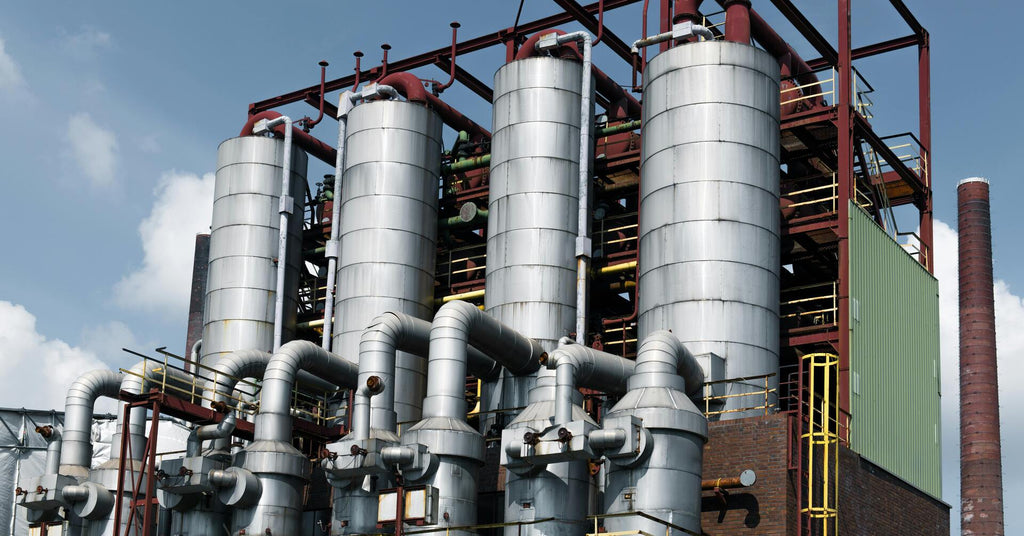Preventing Disasters in Black Liquor Recovery Boilers with Log Books
Black liquor recovery boilers (BLRBs) are essential components in kraft pulp mills, used to recover chemicals and generate energy by burning black liquor, a byproduct of the pulping process. However, these boilers operate under extreme conditions, making them highly susceptible to serious hazards such as steam and hot water releases, furnace explosions, molten smelt runoff, and dissolving tank explosions. Ensuring the safe operation of BLRBs requires a combination of rigorous safety protocols, regular inspections, and comprehensive documentation.
In this article, we will explore the risks associated with black liquor recovery boilers and discuss how systematic record-keeping through boiler log books can help manage these hazards, enhance compliance, and improve overall workplace safety.

Understanding the Risks
WorkSafeBC recently issued a risk advisory highlighting the dangers associated with black liquor recovery boilers. Despite industry awareness, incidents continue to occur, underscoring the need for stringent safety protocols. For example, in December 2022, a severe dissolving tank explosion occurred at a pulp mill in British Columbia. Workers narrowly avoided serious injuries or fatalities by swiftly evacuating the area and sheltering in a protected control room. The explosion resulted in extensive damage to equipment and infrastructure, demonstrating the catastrophic potential of such incidents.
Similarly, in March 2023, a worker suffered severe burns when molten smelt was ejected from the furnace, striking them. This incident highlights the unpredictability and extreme danger associated with smelt ejections, which can occur suddenly and with little warning. The worker required immediate medical attention, and the event prompted an internal safety review to assess preventative measures.

According to the Black Liquor Recovery Boiler Advisory Committee (BLRBAC), there have been over 150 black liquor recovery boiler explosions in North America. These incidents often result in extensive damage requiring days, weeks, or even months of repairs, with some leading to serious injuries and fatalities. The primary cause of water entering a black liquor recovery boiler furnace is leaks in boiler pressure parts. To mitigate these risks, it is recommended that pulp mills conduct semi-annual or annual fireside inspections and annual inspections of pressure parts to identify and address leaks before they lead to dangerous smelt-water interactions. In addition, all safety systems—including emergency shutdown procedures (ESP), low-water protection, and fuel firing systems—should be regularly tested to ensure proper function. Periodic operator training is also essential to maintain awareness of emergency procedures and ensure workers can recognize and respond to abnormal conditions effectively. (National Board)
These events emphasize the ongoing threat to workers and the necessity for real-time monitoring and thorough documentation to prevent such catastrophic outcomes.
The Role of Boiler Log Books in Process Safety
Systematic documentation and record-keeping are essential tools in mitigating these risks. Here’s how boiler log books contribute to workplace safety:
-
Tracking Routine Inspections
Regular inspections and maintenance checks are crucial to identifying potential hazards before they escalate. Log books ensure that all safety checks are recorded, helping teams stay on top of critical maintenance tasks. Documenting semi-annual and annual inspections of pressure parts, ESP, low-water protection, and fuel firing systems ensures that vital components are consistently evaluated and maintained. -
Preventing Oversights
Hazards in black liquor recovery boilers can evolve over time. Boiler log books provide a historical record of equipment performance and conditions, allowing teams to detect and address small changes before they lead to serious accidents. Routine documentation of inspection results can help identify trends that may indicate potential leaks or equipment failures. -
Improving Accountability
Documenting who completed inspections and what was observed enhances accountability across teams. This ensures that critical safety measures are carried out consistently and effectively, promoting a culture of responsibility. Regular operator training and testing should also be recorded to verify that personnel understand emergency procedures and operational best practices. -
Supporting Safety Audits
When regulatory bodies like WorkSafeBC issue advisories, having a well-maintained log book provides evidence of compliance. Detailed records of past inspections, incidents, and repairs allow organizations to demonstrate their commitment to safety. Regular log book entries on safety system tests, including emergency shutdown procedures, ensure that equipment remains in peak condition. -
Enhancing Emergency Preparedness
In the event of an incident, log books provide a valuable reference for analyzing response effectiveness. Learning from past emergencies, such as the December 2022 explosion, helps refine procedures and improve future emergency responses. Documenting operator responses to various upset conditions also ensures preparedness for unexpected situations.

Relevant Products to Optimize Your Operations
To maximize the effectiveness of log books in boiler maintenance and safety, consider these specialized products:
Designed specifically for recording inspections, maintenance, and safety checks related to boiler systems. These log books help track pressure part inspections, emergency shutdown system tests, and fuel firing system maintenance to ensure compliance with industry safety standards.

Chief Engineer’s 1 Shift Per Page Log Book (471C)
Ideal for chief engineers responsible for overseeing shift-based inspections and logging important observations related to boiler performance.

Detailed Engineer’s Log Book (474D)
Provides a structured format for detailed recording of maintenance activities, system checks, and safety procedures for engineers managing complex boiler operations.

Continuous Monitoring and Improvement
A key principle of process safety is the continuous review and improvement of risk mitigation strategies. Regularly updating log book entries with maintenance records, safety observations, and procedural changes ensures that organizations remain proactive rather than reactive in addressing potential hazards.
By integrating boiler log books into safety planning, companies in the pulp and paper industry can significantly reduce risks, enhance compliance, and create a safer working environment for their employees. Implementing systematic documentation practices is not just a regulatory necessity—it is a crucial step toward fostering a culture of workplace safety and continuous improvement.
Have any questions? Get in touch or submit your request via email LBU@logbooks.com



